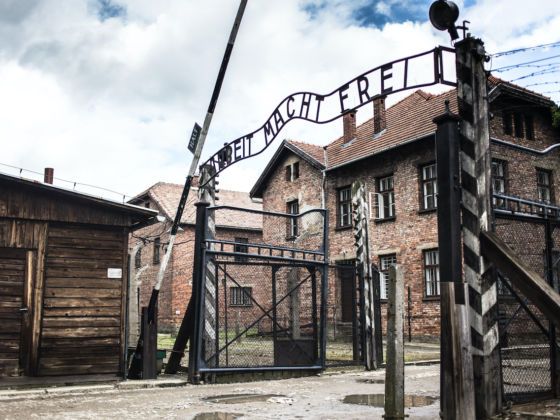AT AUSCHWITZ, Dad and I walk along a rutted path. A metal sign above the entrance reads: ARBEIT MACHT FREI. I wonder if the camp Grandma survived was like this. Dad tells me we’ve been here before, some time around when the Berlin Wall fell, when I was a boy and we lived in Poland. I don’t remember it.
We enter a sagging two-story building. The middle of what once must have been straight-cut rectangular stone steps are worn shallow. This building was a house, because off the entryway a kitchen takes up a corner. Wooden floors creak with the weight of people. What could have been a living room smells like dust.
